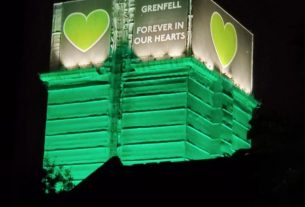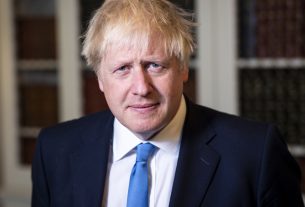The European Union is claiming the pressure of time running out in Brexit negotiations has forced the UK government to make a “desperate” move to try and break the log-jam in the stalled talks.
Boris Johnson’s chief negotiator David Frost is reported to have handed over a “consolidated legal text” at a private dinner in Brussels during the latest round of Brexit talks this week.
The note is classified as a “secret negotiating text”, reports the Times, adding that “it is regarded by EU officials as a desperate move”, quoting a “senior Brussels source” who reminded that the UK government had previously ruled out such a draft and added: “It is the British under time pressure”.
Annoyed Barnier frustrates Frost
While the Times claims the EU’s chief negotiator Michel Barnier “has frustrated” Frost “by refusing to discuss details of a free-trade agreement” without settling the thorniest issues – such as fishing quotas – in “parallel”, the Independent describes a “a visibly annoyed” Barnier at today’s press conference following the latest round of talks.
Barnier told reporters there had been “no progress whatsoever on the issues that matter” and added: “Too often this week it felt as if we were going backwards more than forwards.
“Today, at this stage, an agreement between the EU and UK seems unlikely. I simply do not understand why we are wasting valuable time.”
Frost provided a written statement on the progress of talks, stating he believes an “agreement is still possible” although “it is clear that it will not be easy to achieve.”
He added: “The EU is still insisting not only that we must accept continuity with EU state aid and fisheries policy, but also that this must be agreed before any further substantive work can be done in any other area of the negotiation, including on legal texts.
“This makes it unnecessarily difficult to make progress. There are other significant areas which remain to be resolved and, even where there is a broad understanding between negotiators, there is a lot of detail to work through. Time is short for both sides.”
‘UK will discover agreements require rules’ – Barnier
Barnier said the UK government will discover that negotiating agreements requires them to sign up to common rules, stating: “No international agreement was ever reached without the parties agreeing to common rules and I can predict with absolute certainty this will also be the case of trade agreements with other partners in the future such as the United States, Japan, and Australia.”
As well as fisheries, the issue of a “level playing field” to prevent unfair competition is proving another sticking point as the EU demands British trade, social and environmental standards and regulations remain aligned to theirs.
During the seventh round of Brexit talks this week, Frost told Barnier that finite time represents the biggest risk of reaching a no-deal if work on legal texts – perhaps more than 400 pages worth – was left to the last minute.
A senior Brussel’s source is quoted by the Times, surmising: “We’re still where we were in June and nothing has moved this week.”
EU rejects UK request to return asylum seekers post-Brexit
The news follows a Guardian report that the EU has rejected Britain’s request to allow the return of asylum seekers to Europe after the end of the transition period on December 31.
From January 1 the UK government will no longer be able to continue transferring refugees and asylum seekers to the EU country into which they arrived, under what is known as the Dublin regulation.
EU member states have ruled out allowing the UK to recreate the cornerstone of the European asylum system, leading to the Home Office to complain that the EU rules are “rigid, inflexible and abused by migrants and activist lawyers to frustrate the returns of those who have no right to be here. Whilst we are bound by Dublin for the duration of the transition period, the UK will be able to negotiate its own bilateral returns arrangements from the end of this year.”
The UK’s plan has been described in Brussels as “not good enough” and “very unbalanced” with a European diplomat saying: “The assessment is that this is very much picking and choosing aspects of the current system.”
It is believed that more than 4,100 people have crossed the Channel to the UK in 2020 as compared to the 39,283 who crossed the Mediterranean in small boats to reach Greece, Spain, Italy, Malta and Cyprus.




